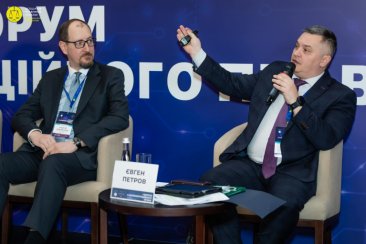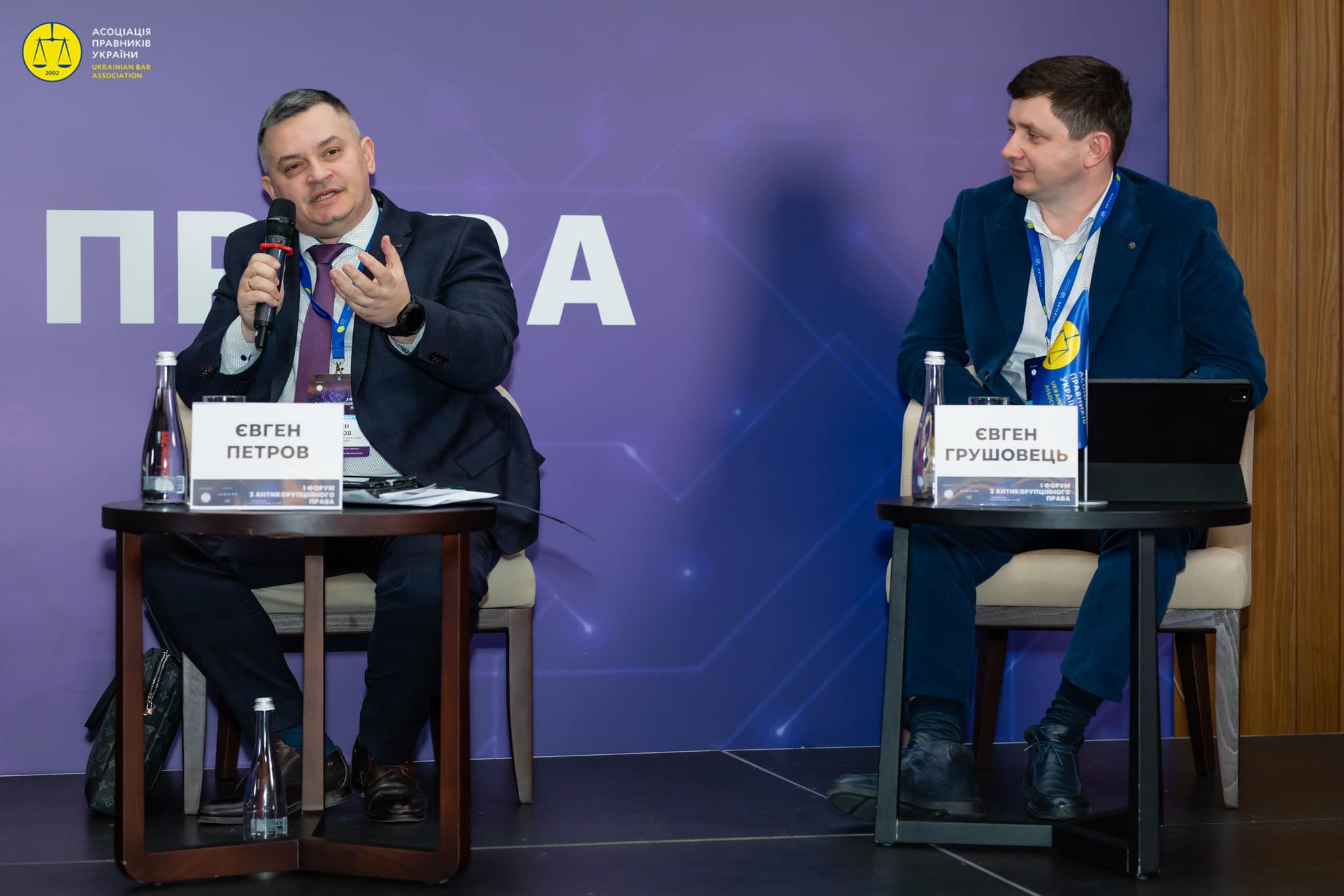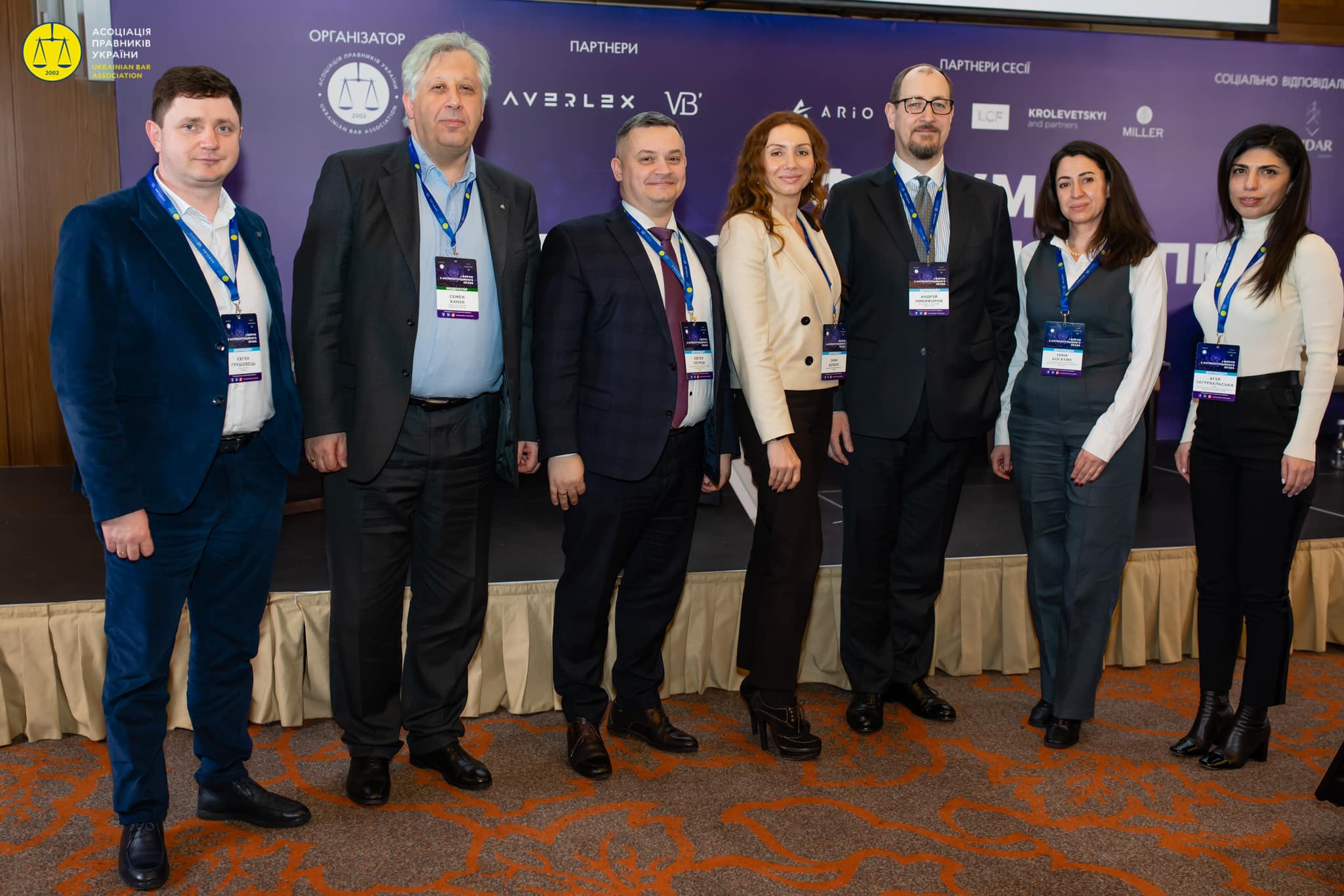Contact center of the Ukrainian Judiciary 044 207-35-46
ABOUT THE SUPREME COURT
FOR CITIZENS
ACTIVITY
PRESS-CENTER

How appropriate it is to define the concept of unfounded assets in the procedural law; what are the standards of proof in relevant cases; how to recover the value of assets if they cannot be enforced; whether it is advisable to indicate related parties as co-defendants in lawsuits - these and other issues were discussed by Yevhen Petrov, a judge of the Supreme Court of the Civil Cassation Court, at the ² Forum on Anti-Corruption Law.
The Law of Ukraine of 31 October 2019 no. 263-IX "On Amendments to Certain Legislative Acts of Ukraine on Confiscation of Illegal Assets of Persons Authorised to Perform State or Local Government Functions and Punishment for Acquiring Such Assets", which entered into force on 28 November 2019, introduced the institution of recognition of unfounded assets and their return to state revenues. Yevhen Petrov drew attention to the problems of regulating the relevant relations faced by the courts when considering this category of cases.
He noted that the term "assets" is increasingly used in legislation (civil, tax, commercial, antitrust, corporate, financial, etc.). At the same time, there are contradictions: on the one hand, assets are the object, but on the other hand, they only certify the object; on the one hand, assets include all property, including securities and cash, but on the other hand, they exist in parallel; on the one hand, the legislator distinguishes between the concepts of tangible and intangible assets, but on the other hand, it combines them.
The definition of the term "assets" for the purposes of Chapter 12 of the Civil Procedural Code of Ukraine "Specifics of Claim Proceedings in Cases of Recognition of Assets as Unfounded and Their Recovery into the State Revenue" is contained in Article 290 of the Code.

Yevhen Petrov spoke about the unusual regulation of the legal regime of the "unfounded assets" construct. He pointed out that: a) the substantive legal regulation of unfounded assets is largely carried out at the level of procedural law and not at the level of the Civil Code of Ukraine; b) the legal instruments themselves are not fully consistent with the Civil Code of Ukraine, which contains only fragmentary regulation of certain aspects of the statute of limitations, the qualification of the decision to recognise assets as unfounded and to recover them for the state revenue as a refutation of the legality of the acquisition of ownership and the grounds for termination of this right. The speaker noted that Articles 290, 291 of the Civil Procedural Code of Ukraine refer to substantive law, while there is a decision of the Constitutional Court of Ukraine (as of 26 February 2019 in case no. 1-ðï/2019) that if procedural law contains provisions of substantive law, it contradicts the Constitution of Ukraine.
The judge noted that there are two models of confiscation in international law: in rem (against a thing) and in personam (against a person). The former is used in civil confiscation, while the latter is used in criminal proceedings. Depending on the model of confiscation, the relevant standards of proof are applied, and in Ukrainian law, the principle of in personam is more common. Thus, according to Yevhen Petrov, the question arises as to whether in cases involving the confiscation of unfounded assets, the principle of proof typical of criminal proceedings should be applied, rather than the "balance of probabilities" inherent in civil proceedings.
These issues need to be discussed today to avoid having to change the case law in five years' time, the speaker noted. He stressed that in civil proceedings there is a principle of discretion and each party, whether it is a prosecutor or an individual, must prove its position.
Yevhen Petrov also pointed out that the construction of the invalidity of a transaction does not apply to the confiscation of unfounded assets. The presumption of legality of a transaction does not work (the main principle is that the burden of proof of illegality, invalidity or nullity lies with the person making such claims in court). The main principle is to rebut the presumption of legality of the acquisition of property rights (part 2 of Article 328 of the Civil Code of Ukraine).
The speaker drew attention to the fact that the entities against which such a claim may be brought are public officials and "related" persons (part 4 of Article 290 of the Civil Procedural Code of Ukraine, para. 1 of part 1 of Article 3 of the Law of Ukraine "On Prevention of Corruption"). "Related persons" must act on behalf of a public official. And in the relevant cases, lawyers point out that in civil law, a power of attorney is a written authorisation given by one person to another for representation before third parties (Article 64 of the Civil Code of Ukraine), and that the SAPO should provide evidence that such a power of attorney existed. The Civil Cassation Court of the Supreme Court supports the position of the High Anti-Corruption Court that in such cases a power of attorney cannot be understood as a transaction under the Civil Code of Ukraine, but rather implies that there were certain circumstances indicating that the public figure and the third party were related. However, the lawyers point to part 2 of Article 19 of the Constitution of Ukraine and say that the court should act strictly in accordance with the Civil Code of Ukraine. There are discussions about this.

Yevhen Petrov also spoke about a case being prepared for referral to the Grand Chamber of the Supreme Court to resolve an exceptional legal issue. This case raised a number of issues. The SAPO sought to recover the value of unlawfully acquired asset, rather than the asset itself. The speaker noted that Art. 291 of the Civil Procedural Code of Ukraine provides for the recovery of an asset, so it is necessary first to recover the asset, and if this is not possible, then to recover the value of the asset.
In this case, the related party is named as a co-defendant. Yevhen Petrov drew attention to the resolution of the Civil Cassation Court of the Supreme Court of 4 October 2023 in case no. 991/2396/22, which concluded that the law does not establish cases of joint and several liability for the recovery of unfounded assets to the state revenue or the value of such assets. At the same time, the operative part of the court's decision does not mention the related party. The speaker noted that if a co-defendant is involved in the case, the court must clearly determine whether he or she has violated any rights and whether and how he or she should comply with the court decision.
The exceptional legal issue in this case concerns the determination of the value of the property.
Yevhen Petrov stressed that the issues raised require a broad discussion, to which he called on the participants of the event and all stakeholders. He also added that it is likely that most national court decisions in such cases will be appealed to the ECHR, and it is necessary for the ECHR to see that the national court acted solely on the basis of the law.
The event was organised by the Ukrainian Bar Association.
Yevhen Petrov's presentation is available at https://supreme.court.gov.ua/userfiles/media/new_folder_for_uploads/supreme/2024_prezent/Petrov_prezentacia_11_03_2024.pdf.